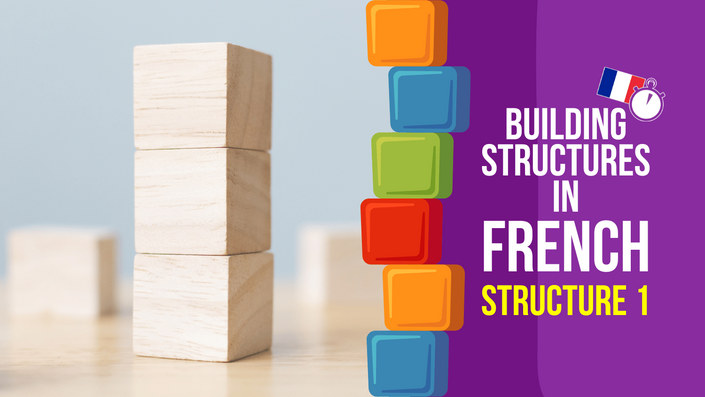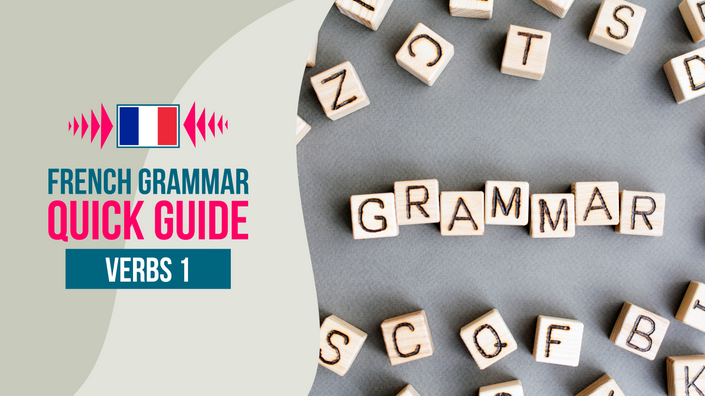
Using “pour moi” to give an opinion in French
The phrase “pour moi” literally means “for me”, but you can also use it as a way of giving your opinion in French.
Giving your opinion
If you place “pour moi” in front of a statement, you’re basically saying that the statement is your opinion.
c'est bon – it’s good
pour moi, c’est bon – I think it’s good
You can translate it as “I think”, like in the sentence above, or you could also say “in my opinion”
c’est fantastique – it’s fantastic
pour moi, c’est fantastique – I think it’s fantastic / in my opinion, it’s fantastic
c’est terrible – it’s terrible
pour moi, c’est terrible – I think it’s terrible / in my opinion, it’s terrible
The two meanings of "I think"
Now, I said you can use “pour moi” to give your opinion, and you can translate it using “I think” into English. However, you can’t translate every instance of “I think” using “pour moi”; it has to be an opinion.
Have a look at the two sentences below, the first is an opinion, but the second is not
I think it’s good
I think it’s here
You can say that you think something is good, and that’s an opinion. However, if you say, “I think it’s here”, that is not an opinion; it’s simply something you believe to be true. You can’t use “pour moi” in this instance. You can always check whether or not you can use “pour moi” by replacing the “I think” in a sentence with “in my opinion”. If it still makes sense with “in my opinion”, you can use “pour moi”.
I think it’s here
in my opinion, it’s here
The second sentence is not something we could really say in English, so you need an alternative expression for “I think” in French.
Je pense (que)
There’s another phrase that you can use to mean “I think”, and you can use it in any situation: je pense
The only thing to remember when using “je pense”, however, is that you have to put the word “que” before the next part of the sentence.
je pense que c’est bon – I think it’s good
je pense que c’est pour moi – I think it’s for me
je pense que c’est ici – I think it’s here
If you place “que” in front of a word that starts with a vowel or the letter H, you have to contract it to qu’
je pense qu’il est français – I think he’s French
je pense qu’elle est belle – I think she’s beautiful
je pense qu’ils sont ici – I think they’re here
I think (that)
The word “que”, in this situation, means “that”, and it’s something that is optional in English.
I think it’s good / I think that it’s good
I think Pierre is here / I think that Pierre is here
I think everybody is nice / I think that everybody is nice
You can choose whether or not to use it in English, but in French, you always have to say “je pense que” to say that you think something.
je pense que c’est bon – I think (that) it’s good
je pense que Pierre est ici – I think (that) Pierre is here
je pense que tout le monde est sympa – I think (that) everybody is nice
Other ways to give your opinion in French
There are lots of ways, both in English and in French, to give your opinion. You already know “pour moi” and “je pense que”, but there are quite a few more.
pour moi – in my opinion (literally: for me)
je pense que – I think that
à mon avis – in my opinion (in my view)
selon moi – according to me
quant à moi – regarding me
pour ma part – for my part
je crois que – I believe that
d'après moi – in my opinion
en ce qui me concerne – as for me (literally: as far as I’m concerned)
Obviously, we don’t say “regarding me” or really even “according to me” in English, but they do say them in French as ways of giving an opinion.
c'est parfait, à mon avis – it’s perfect, in my opinion
selon moi, tout était fantastique – in my opinion, everything was fantastic
je crois que Pierre est ici – I believe (that) Pierre is here
If you’re on 3 Minute French – Course 1, don’t worry about learning all those phrases above; I only included them here to show you the variety that is available in French. For now, simply stick with “pour moi”, and we’ll come to each of the other phrases in later courses.
Let's practise
Using either “pour moi” or “je pense que”, see if you can translate the following sentences into French.
here – ici
fantastic – fantastique
the children – les enfants
are – sont
very – très
good – bon
nice – sympa
the wine – le vin
delicious – délicieux
expensive – cher
there – là
everybody – tout le monde
now – maintenant
beautiful – beau
- I think it’s here
- I think it’s fantastic
- I think the children are here
- I think that is very good
- I think everybody is very nice
- I think the wine is delicious
- I think the wine is expensive
- I think the wine is there
- I think everybody is here now
- I think that is beautiful
ANSWERS
- Je pense que c’est ici
- Je pense que c’est fantastique / Pour moi, c’est fantastique
- Je pense que les enfants sont ici
- Je pense que ça c’est très bon / Pour moi, ça c’est très bon
- Je pense que tout le monde est très sympa / Pour moi, tout le monde est très sympa
- Je pense que le vin est délicieux / Pour moi, le vin est délicieux
- Je pense que le vin est cher / Pour moi, le vin est cher
- Je pense que le vin est là
- Je pense que tout le monde est ici maintenant
- Je pense que ça c’est beau / Pour moi, ça c’est beau
Get three courses in one bundle, and save money
-

Courses 1, 2 & 3
Get this bundle -

Courses 4, 5 & 6
Get this bundle -

Courses 7, 8 & 9
Get this bundle
Course 2, Building Structures and grammar courses
-

Course 2
Get this course -

Building Structures
Get this course -

Quick Guide
Get this course
All my French courses

Building Structures in French
Quick Guides
French grammar
Essential French grammar - Future | Conditional | Imperfect
All my Spanish courses

Building Structures in Spanish
Quick Guides
Spanish grammar
Essential French grammar - Future | Conditional | Imperfect
All my German courses

Building Structures in German
Quick Guides
German grammar
Essential French grammar - Future | Conditional | Imperfect
All my Italian courses

Building Structures in Italian
Quick Guides
Italian grammar
Essential French grammar - Future | Conditional | Imperfect
All my Portuguese courses

Building Structures in Portuguese
Quick Guides
Portuguese grammar
Essential French grammar - Future | Conditional | Imperfect






